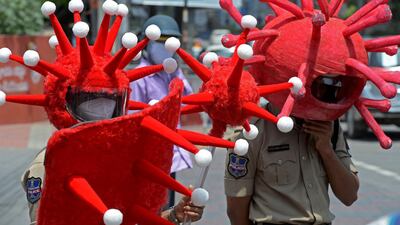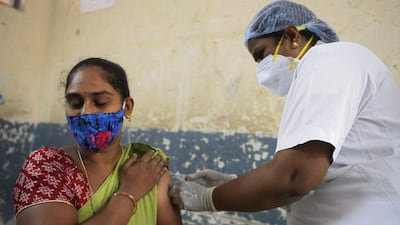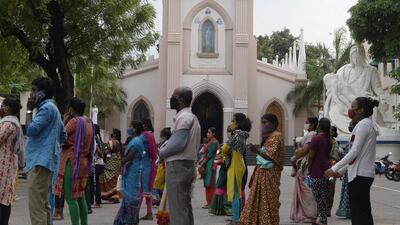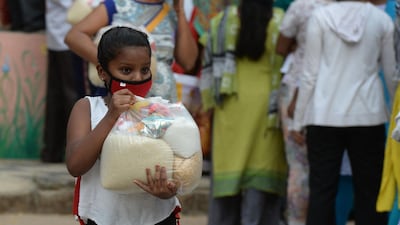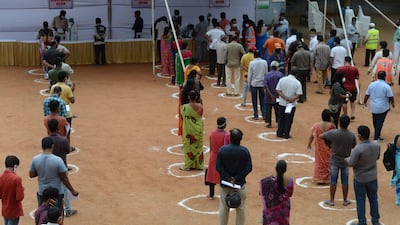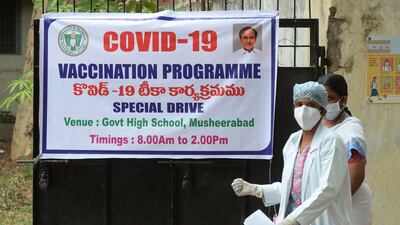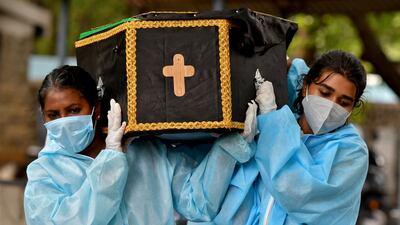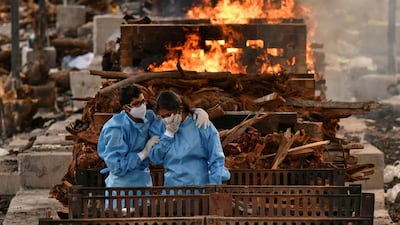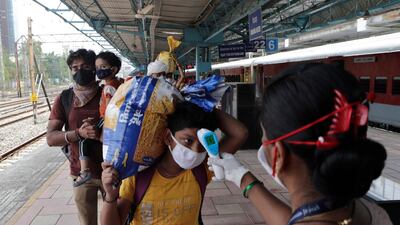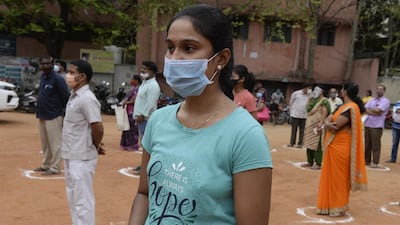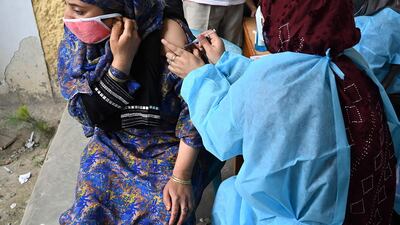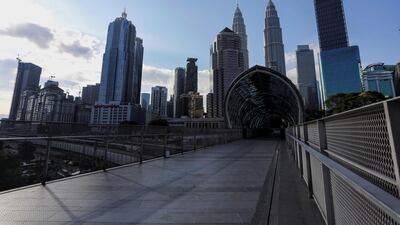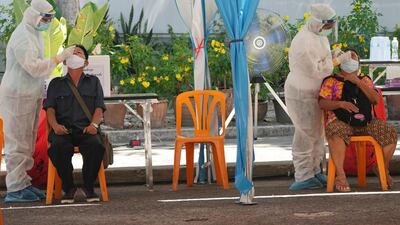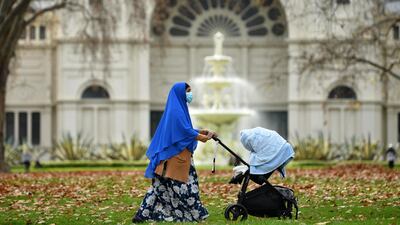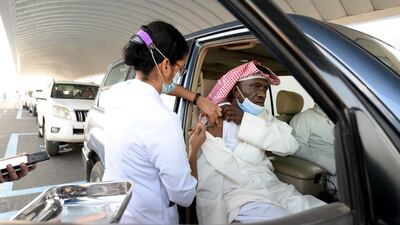India’s Supreme Court has criticised the government’s coronavirus vaccination programme as it continues to struggle with chronic vaccine shortages amid ongoing devastation from a severe wave of infections.
The country’s top court questioned the Modi government’s vaccine procurement policy, which has left vulnerable Indian states to fend for themselves in local and global markets amid a dramatic shortfall in local production.
“We are asking you to please wake up and smell the coffee and see what’s happening across the country,” the court told the government during a hearing on the Covid-19 crisis on Monday.
The three-judge bench asked the second highest law officer of the country whether it was the policy of the federal government to let states compete with each other in procuring vaccines.
“You can't just say that you're the centre and you know what's right. We have a strong arm to come down on this," Justice Dhananjaya Chandrachud told Tushar Mehta, the Solicitor General of India.
A day earlier, the government had promised to provide 120 million vaccine doses in June, but experts said it would not be enough to boost the vaccination drive among India's massive population.
The country of nearly 1.4 billion people had a meagre 80 million vaccine doses available in May, forcing many regions to curtail the immunisation drive that is considered key to defeating the raging pandemic.
Covid-19 has killed nearly 150,000 people in India since March.
India's government in January promised to give free vaccines to about 300 million people by the end of July – mostly health workers and those above the age of 45.
But the government rushed to roll out vaccinations for nearly 600 million people between the ages of 18 and 44 in May as the brutal wave of infections threatened to overwhelm the country’s healthcare system.
Experts say the knee-jerk announcement was taken without accounting for the availability of vaccines and derailed the vaccination programme.
The world's leading vaccine manufacturer, India has only administered 212 million shots, with only 44 million people having received both doses, according to health ministry data.
"Considering the vaccine supply was already short for those above 45 years of age, it was not wise to open up for the entire population. India should have waited before doing that," said Dr Chandrakant Lahariya, an independent Delhi-based vaccinologist.
Dr Lahariya told The National the 120 million doses for the month of June will help the country inoculate four million people a day but was still far below the target of 8-10 million daily vaccinations needed to help curb the raging pandemic.
Although infection rates have ebbed in recent days after hitting a peak of more than 400,000 new daily cases in early May, tens of thousands of new patients are being identified each day.

On Monday, the country reported more than 150,000 cases, its lowest daily rise in nearly 50 days, with 3,100 deaths in 24 hours.
India's case tally exceeded 28 million, while the death toll since the pandemic beganpassed 325,000 amid fears of a third wave.
Experts say one of the major reasons for the crisis is that the local vaccine makers could not increase production to meet the huge demand when the federal government expanded the programme in May and asked states to procure doses on their own.
The country is administering two indigenously produced vaccines – Oxford-AstraZeneca’s Covishield produced by the Serum Institute of India (SII) and Bharat Biotech’s Covaxin – after they were given emergency approval in January.
The SII produces 65 million doses a month, while Bharat Biotech makes 20 million monthly, according to a government affidavit submitted to the Supreme Court.
"We will ramp up our production to 90 million by June and 100 million by July," a company official confirmed to The National.
India has also introduced Sputnik V on a smaller scale, with local production of the Russian vaccine due to begin in the coming months.
The country is also seeking vaccines from Pfizer and Moderna amid mounting pressure from critics, health experts and opposition parties.
Pfizer has shown interest in an arrangement for 50 million shots but the deal is being delayed over indemnification and other clauses, while Moderna is expected to enter the Indian market next year.
India's vaccine scramble comes months after Prime Minister Narendra Modi "gifted" about 66 million doses to other countries under its controversial "vaccine diplomacy" programme. The country stopped exporting doses in April, however.
India's External Affairs Minister Subrahmanyam Jaishankar last week flew to the US to seek its co-operation and iron out issues surrounding the import of Covid-19 vaccines and the raw materials needed to make them.
Last week, the government said it would provide two billion doses between August and December without giving a breakdown of the procurement plans.
But health experts say the government’s ambitious new target to vaccinate close to a billion people will face serious challenges, both in terms of production and procurement.
"Whether we will be able to keep to the timeline announced by the government and complete most vaccinations by the end of this year remains to be seen, because of the challenges of availability of vaccines and enough vaccination centres," Dr K Srinath Reddy, President, Public Health Foundation of India, a health charity, told The National.
"We would all want the scale and pace to be increased but we do not know how much is available in the international market so we have to try to both produce more and procure more vaccines."
